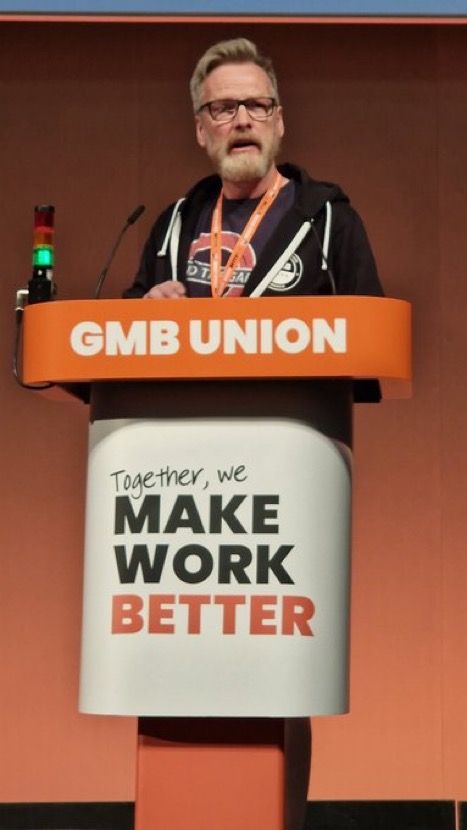“I witnessed colleague’s careers ending after they got Covid-19"
Simon talked to the TUC about his experiences of working during Covid-19. He said:
I think the one word I’d use to describe working through the pandemic is ‘uncertainty’

“In the early days the regulations were changing quickly and multiple times – sometimes during the same day and even during the same shift.
“I remember being out for a cardiac arrest and cleaning down the ambulance afterwards, following the recommended procedure, only to get back to the station and find that the process had been updated and we had to do it a different way.
Stress and anxiety
“It was sometimes difficult to keep up with the ever-changing guidelines, and staff felt the stress and anxiety of that challenge.
“Then as the pandemic developed, you’d start to hear stories of health professionals who were getting sick and even dying, because of contracting Covid-19 while doing their jobs.
“As a member of the ambulance service, you’d then reflect on the fact you were stuck in a little box wondering if the ventilation was doing its job and if the PPE we had was sufficient.
There were times when your shift was interrupted because you’d run out of masks and aprons, and you had to stop work to go and get more, which increased anxiety among staff.
The “perfect storm”
“As an ambulance worker your priority is to get to your patient as quickly as possible and act as fast as you can.
“There was an internal struggle because, for our most serious cases, it took time to kit up, you’d be worrying that the few minutes delay might harm your patient or whether your concern to act quickly would increase the risks you’d take and be detrimental to your own health.
“It was the perfect storm of wanting to protect yourself, but also wanting to do the right thing by your patients.
“There were lots of conversations among ambulance staff about feelings of guilt around increasing the delay, even of two or three minutes in our most serious cases.”
Impact on colleagues
Simon saw first-hand the impact of contracting Covid-19 on his peers. He said: “I witnessed colleague’s careers ending after they got Covid-19 and they couldn’t work again due to the effect on their health and it developed into Long Covid.
“That was a really difficult experience as these were people who were perfectly fit and healthy before they got Covid-19.
“You’d then be thinking – is this the last patient I’m going to treat because I’m going to contract Covid-19 and become seriously unwell? It was a big consideration and added extra strain at work.”
Mandatory vaccines
In November 2021 the government introduced mandatory vaccines for care workers, and Simon found this had an impact on his service. He said:
40,000 care workers left the profession when the compulsory vaccinations were introduced and that caused real problems for us.
“We had patients ready to be discharged from hospital into care – but no care workers to look after them. We used to have one ward in hospital for people who are ‘medically fit to discharge’. That went up to four wards.
“This blockage meant we had no spaces to admit new patients – they'd get stuck in A and E or assessment units, or even on the back of your ambulance in the car park outside the building.
“So, the uncertainty continued – I'd be questioning, can I actually do my job how I want to do it if I’m sat in a car park and unable to respond to callers in the community?
“All this stress took its toll. We had staff off sick with Covid-19 or isolating, but also colleagues were off for mental health reasons with this consistent stress and anxiety. That meant you were never sure who you’d be working with on any given shift.”
Public support
Simon felt supported by the public during the pandemic. He said: “I’ll be honest the clapping took us a bit by surprise! The first time I heard it was I think the first Thursday it happened.
“I was out on a call and was just getting out of the vehicle to go to my patient, when people all came out in their doorways and were clapping and banging saucepans. My first reaction was to jump back into the vehicle!
“It was all a bit strange and surreal – but we welcomed the support and this new perspective about how important key workers are. I just wanted to make sure others like shop workers, bin men and posties were all valued as well, as they were going out doing their jobs too – but with less medical knowledge and less PPE than we had.”
